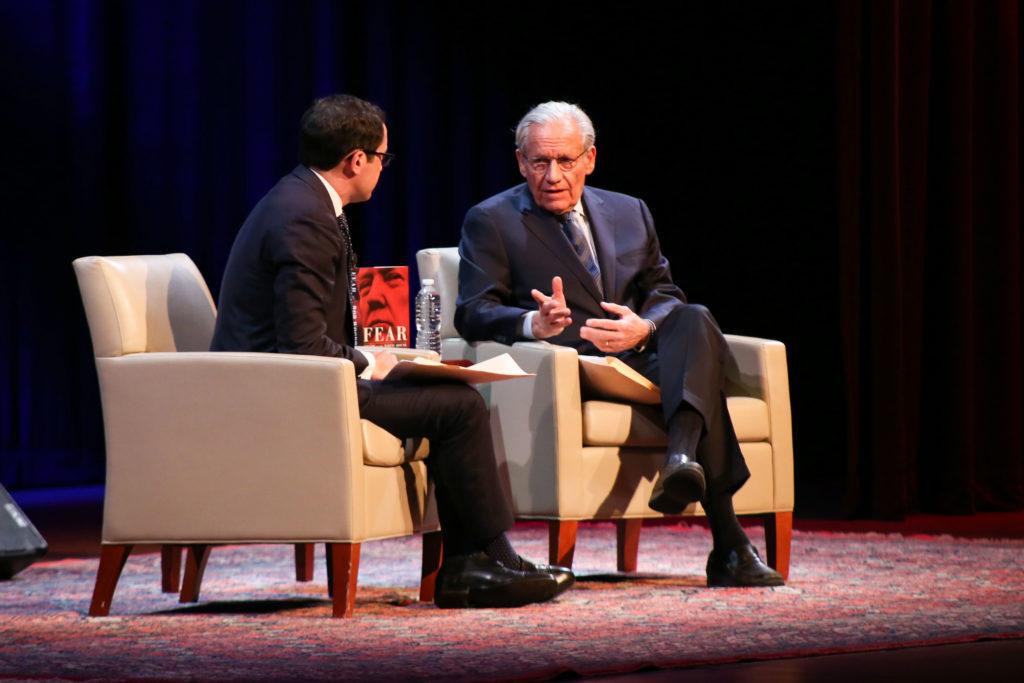Journalist Bob Woodward visited Lisner Auditorium Thursday to discuss his new tell-all book about the Trump administration.
The book, titled “FEAR: Trump in the White House,” is the Pulitzer Prize-winning journalist’s 19th publication. Woodward, one half of the duo that famously reported on the Watergate scandal for The Washington Post, discussed his new book with New York Times correspondent Michael Schmidt at the event, which was sponsored by independent bookstore chain Politics and Prose.
Like “Meet the Press” host Chuck Todd three days before him, Woodward opened the event by discussing the Senate confirmation hearings for Judge Brett Kavanaugh, President Donald Trump’s nominee for the Supreme Court.
Earlier Thursday, the world watched as Christine Blasey Ford testified in front of the Senate describing a sexual assault she alleged Kavanaugh committed against her in high school.
Woodward said the Democratic response to the sexual harassment accusations – a call for an FBI investigation – may not yield the result the party is looking for, alluding to Senate Judiciary Committee Chairman Chuck Grassley’s remarks that FBI reports don’t offer political recommendations.
“The Democrats talk as if FBI investigations reach conclusions, which – the committee pointed out – they normally don’t,” he said.
Woodward then shifted to discuss the main takeaways from his book and the current state of the Trump administration. He said the Trump White House is currently in the middle of a “nervous breakdown,” which manifests itself in a cutthroat work environment and no strict protocol for approaching tough issues.
Woodward pointed to Trump’s trade war with China as an example of a decision made because Trump is unwilling to consult experts or standard procedures for dealing with complicated policy concerns.
“We buy things that are brought in this country because they’re cheaper and they’re better quality, and Trump somehow has in his head that the Chinese are taking that money from us, that they’re stealing,” he said. “He will not get that out of his head.”
Woodward was unable to reach Trump for a comment while he wrote the book, but he said if he had been able to interview him, he would have asked the question, “why?”
“What is the big theory, what are you trying to do?” he said. “What is the next stage of good for the majority of people in the country?”
Woodward also discussed journalism in the Trump era and said that throughout his decades of experience reporting on presidents, one thing has remained the same: the tendency for the accused parties to shift doubt on the media reporting their wrongdoings.
“Of course the line then, 45 years ago, was very much what we hear now: let’s examine the conduct of the press, not the conduct of the president,” he said.
Woodward offered advice to rising journalists, encouraging them to make themselves available for in-person interviews, which he said can produce some of the most telling and useful quotes.
“We’re not showing up enough, and we’ve got to really show up and it means physical presence,” Woodward said. “You’ve got to get out of that technology-oriented mode and you have to get out of the impatience and speed mode.”





